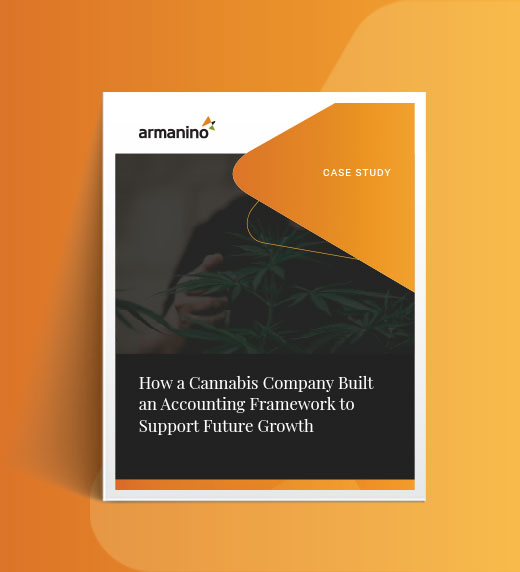Although M&A activity dipped during 2020 due to the pandemic, positive investor sentiment toward the cannabis industry has grown after a wave of states moved towards legalized marijuana and a new U.S. administration took office that was believed to be more favorable to the industry. This increased focus, and uptick in M&A activity, has led many organizations to think through steps that may work to maximize value, and consider when might be a good time to exit.
As the industry continues to evolve and grow, and more and more M&A activity takes place, there is increased transaction data that allows both buyers and sellers to benchmark and compare when contemplating potential transactions. This increasing industry deal activity has cannabis related organizations giving more consideration to exit opportunities. If and when potential buyers come knocking on the door, the following are key considerations that may work to help maximize company valuations.
Make Sure to Consider Timing
Interest in the cannabis industry is strong and continues to trend higher, but it can be very important to take a step back and look at the overall global economy, the domestic economic, as well as the cannabis industry as a whole to gain some important context. Understanding economic trends (macro and industry), especially as we move forward after 2020 and the pandemic, can provide some important context as it relates to your company, growth prospects and what a buyer will be considering as they look at potential acquisition targets.
After considering some of the aforementioned macroeconomic and industry trends and how those may provide potential buyers the backdrop as they consider potential companies for purchase, turn inward and consider and think through your company-specific factors that may impact how attractive an acquisition target your company would be, and what valuation range and range of potential offers you may attract.
For example, are you an early-stage company with a limited track-record of performance who may benefit from additional time to grow and mature? When a potential acquirer is conducting their due diligence of your company, will they observe a management team that is still being built out and/or financial reporting that is less than orderly? These may lead to offers at a lower amount as buyers could have less confidence in past performance and projections for growth and profitability in the future.
Or is your company much better established, with a longer track-record of performance, profitability, good financial reporting and equally solid future growth projections? Analyzing the current state of your company, its future growth and how this may be more or less attractive to potential buyers can be an important part of thinking through the issue of timing and what may be better options for your company.
Create Trust in Your Management Team
When a buyer evaluates your organization as a potential acquisition target, one of the first things they’ll want to understand and assess is how complete and experienced your management team is, and, even more specifically, how experienced they may be in the cannabis industry. In an evolving and fast-growing industry with issues around regulatory compliance, tax law and compliance, a savvy and experienced management team may be viewed as especially critical as a potential acquirer evaluates your company. A management team with experience in the cannabis industry, experience growing a company and in taking a company through an exit can all add to the confidence a buyer has when they conduct their due diligence and may lead to a higher valuation. Management’s ability to define their business model, display focus and the ability to execute and realistic financial projections can all contribute to confidence in the management team, the business and the business’s future potential.
Get Your Finance and Accounting in Order
Whether you have financials that are audited financials, or internally prepared financials that haven’t been audited, potential buyers will want to understand the accuracy and completeness of the information you provide. And the completeness and accuracy of the financials you provide of your company’s historical performance will allow buyers to more accurately assess the forecasts and future projections you provide. The reality is that you may be contacted out of the blue by a potential buyer, so having solid financial reporting information readily available can assist as you consider or enter into the M&A due diligence process.
Given the unpredictable timing of when you may need to produce this information, possessing an effective business technology stack can streamline recording and reporting this data. (We’ve detailed the various operational benefits in a previous blog .) Your tech stack also can be viewed as an asset to increase the value of your company. It serves as extra assurance of the sophistication of your organization, and a potential buyer may be more confident that the information you’re providing is high quality.
Tax Related Items and Exposure
Taxation is a critical topic in any industry but can be especially important for cannabis companies. Cannabis tax laws and changes can be recent, and changing, given frequent policy changes at the federal, state and local levels which can make monitoring and compliance a significant endeavor for your company. This is further complicated by the broad scope of the cannabis industry which includes hemp, seeds, medical and recreational marijuana, cultivators, distributors, and retail and delivery — with many organizations operating in multiple verticals. In short, different parts of the industry and companies based in and/or operating in different geographies can have differing rules and regulations. With this complexity, addressing tax compliance issues is paramount.
The enforcement of these rules and regulations in the industry can be aggressive, with IRS statistics showing that more errors are found during reviews of cannabis companies compared to other industries. Armanino has published another blog post relating to audits in the cannabis industry, with some useful information
here.
It’s reasonable to assume any entity looking to acquire a cannabis organization will be well served by paying particular attention to a target’s tax-related situation, monitoring and compliance. A buyer would want to avoid discovering or identifying unpaid taxes or penalties during the due diligence process or after the deal closes.
Types of Buyers
Getting a fair valuation for your company ultimately depends on the offer. The characteristics of your business are going to attract different suitors, and knowing the different profiles of buyers acquiring cannabis companies provides insight into who may target you.
If your organization is lean, runs an effective back office and is already profitable, you’re likely going to attract offers from a financial buyer . They tend to look for opportunities where they can buy a company, make some improvements and then exit in three to five years. Their eyes are usually set on more established businesses that don’t require a total overhaul to turn a profit.
There are also corporate buyers. They’re usually looking to vertically integrate their supply chain. So, while an efficiently run company is ideal, they’re more interested in finding an acquiree who aligns with their business model. For example, a corporate buyer may already have cultivators and retail locations but wants to cut out the go-between by purchasing a distribution company. They’ll still do their due diligence but may not be as focused on your organization’s current profitability.
Next Steps
We’ve provided some key focus areas as you consider your current situation and the potential for a future sale of your company. While this is not a comprehensive checklist, thinking through timing, your management team, financial systems and reporting, and key tax issues should allow you to better assess where your company currently stands and how a potential buyer might view how strong, or in need of improvement, these areas and others are.
While the cannabis industry is growing and M&A activity is strong, that doesn’t necessarily mean a company will be sold at its highest potential value just because it’s a cannabis company. Think through how you can better position your company to attract a higher valuation offer by being proactive and prepared.
Reach out to our cannabis experts if you have questions or want to learn more about maximizing your organization’s valuation.



